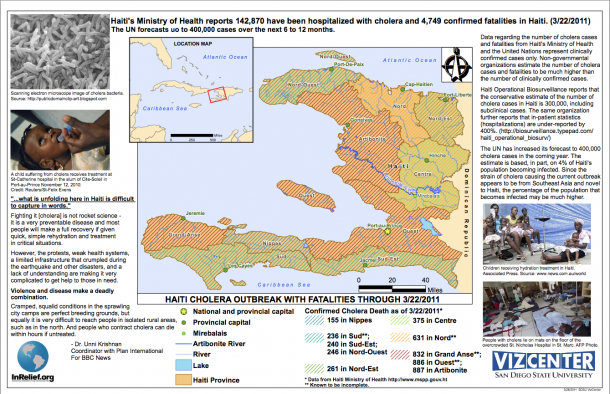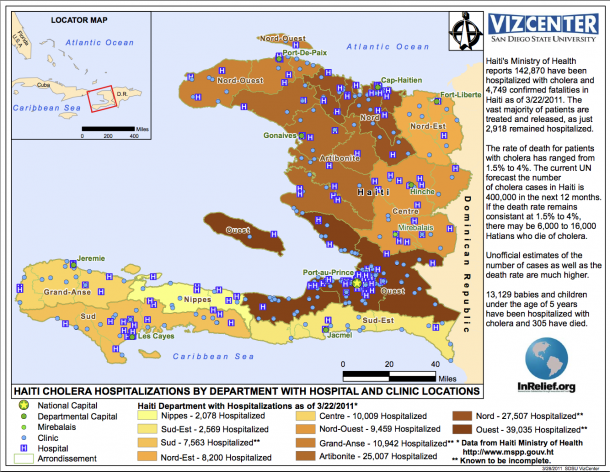According to data sent by the MSPP, between 20 October 2010 and 28 February 2011, the cumulative number of reported cholera cases was 249,937, including 4,670 deaths. The cumulative number of cholera cases has stabilized (figure 1). The observed cumulative incidence of cholera cases since the beginning of the outbreak is of 24 per 1,000 inhabitants, ranging from 4 per 1,000 in the Department of South-East to 42 per 1,000 in the Department of North East.
To respond adequately to the cholera outbreak, NGOs have set up a significant number of cholera treatment facilities and provided them with medical supplies, sanitation facilities, water supplies, and salaries and training for local medical staff. In view of the downward trends in cholera cases, some NGOs are now leaving these facilities. The departure has raised concerns about the capacity of local health structures and staff to cope with a possible increase in the number of cholera cases, especially in the imminent rainy season. NGOs have stated that they continue to monitor the situation and are ready to return to support an appropriate response. However, local staff salary problems and threats of strikes are already affecting the normal service to patients looking for medical care. Certain departments hope to receive funding from the World Bank and are looking for partners to bridge the gap.
Due to the likely suspension of humanitarian activities related to cholera response by NGOs, several clusters have undertaken gap analysis to identify main trends and implications of cholera response. The results of this analysis will be available shortly.
During the MSPP presentation on the finalized strategy for continuation of cholera response, MSPP has provided the criteria for closing cholera centers that have no more than 3 cases per day for 14 consecutive days.
New and pending issues in the WASH sector include limited financing for drinking water distribution and excrement removal from latrines and septic tanks as well as the pending solution to long-term excrement management. Additional problems pose serious concerns with regard to adequate environmental public health.



